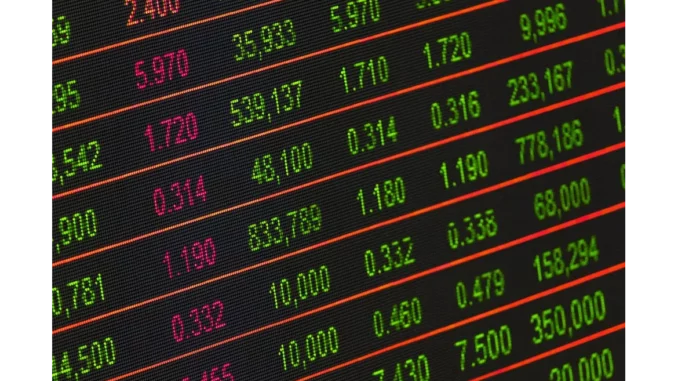
The cryptocurrency market experienced a notable downturn following the recent presidential debate between Democratic nominee Kamala Harris and Republican rival Donald Trump. The debate, characterized by a series of intense exchanges, has heightened investor anxiety regarding the future regulatory environment for cryptocurrencies in the United States, especially in light of Trump’s vocal support for the digital asset sector.
Bitcoin, the leading cryptocurrency, saw a decline of up to 3.4% before making a slight recovery to trade at approximately $55,850 by 10:04 a.m. Wednesday in New York. This drop was part of a broader retreat among risk-sensitive assets, including equities and bonds, which also reacted to an unexpectedly rapid inflation report. The inflation data fueled speculation that the Federal Reserve might decelerate its rate-cutting pace, thereby contributing to overall market uncertainty.
In a surprising turn of events, Donald Trump has emerged as a staunch advocate for the cryptocurrency industry, a stark departure from his earlier dismissive remarks when he labeled cryptocurrencies as a “scam.” Trump now pledges to transform the U.S. into the “crypto capital of the planet.” His campaign has embraced cryptocurrency donations and launched multiple non-fungible token (NFT) collections, generating millions of dollars. This pivot underscores his strategic engagement with the burgeoning crypto community, which sees him as a potential ally in their quest for favorable regulations.
Conversely, Kamala Harris has yet to delineate a clear stance on cryptocurrency. An adviser from her campaign indicated that she might support industry growth while instituting necessary safeguards, mirroring the Biden administration’s focus on consumer protection and financial stability. This ambiguous position has left the market apprehensive about the future regulatory landscape, particularly as Harris’ approach remains largely undefined.
The debate dynamics significantly influenced market sentiment. Trump, often on the defensive as Harris scrutinized his policies and character, appeared to lose ground in the eyes of investors. The market interpreted Harris as the victor, prompting a negative response within the cryptocurrency sector. Betting markets also adjusted in her favor post-debate, further intensifying the uncertainty for crypto investors who had banked on Trump’s pro-crypto policies.
Beyond the immediate market reactions, the cryptocurrency sector is navigating a complex landscape shaped by political and economic variables. Bitcoin, which soared to an all-time high of $73,798 in March, has since cooled but continues to be a focal point for investors. The market is also dealing with the fallout from high-profile collapses, such as the FTX exchange, and escalating regulatory scrutiny from the Securities & Exchange Commission (SEC).
Cryptocurrency’s role in the presidential election is becoming increasingly prominent, with substantial donations flowing into political action committees from the industry. Crypto businesses are lobbying for more favorable regulations, countering the SEC’s stringent stance under Chair Gary Gensler. This political engagement underscores the high stakes for the industry as it seeks to establish a more accommodating regulatory framework.
The future regulatory landscape for cryptocurrencies in the United States remains in flux, largely contingent upon the presidential election outcome. Trump’s commitment to supporting self-custody rights for crypto holders and his ambition to make the U.S. a crypto hub stand in stark contrast to the Biden administration’s more cautious regulatory approach. As the election approaches, investors will be keenly attuned to any policy announcements that might impact the market.
The recent presidential debate has underscored the profound influence of political developments on the cryptocurrency market. With Trump positioning himself as a champion for the crypto cause and Harris’ stance still ambiguous, the stakes for investors are exceedingly high. The election’s outcome could decisively shape the regulatory environment for years to come, making it a pivotal factor for the cryptocurrency industry’s future. As the electoral contest intensifies, the market is likely to continue responding to political signals, adding another layer of complexity to an already volatile sector.

Be the first to comment